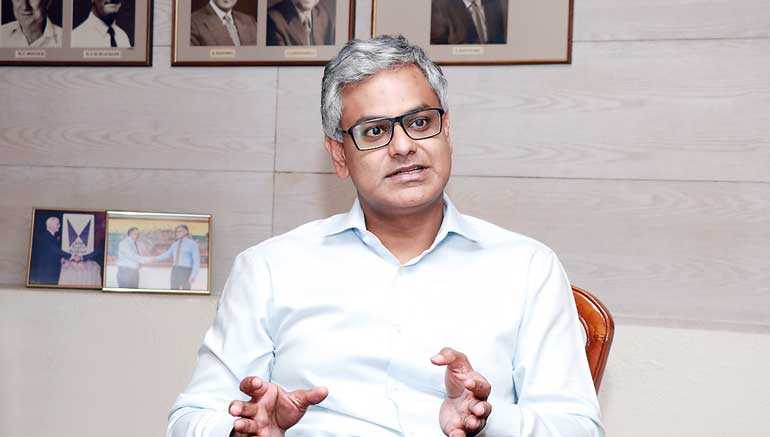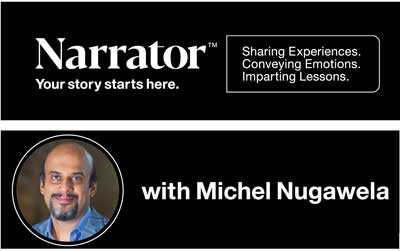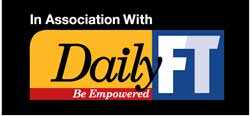Sunday Feb 22, 2026
Sunday Feb 22, 2026
Tuesday, 18 August 2020 00:45 - - {{hitsCtrl.values.hits}}

Krishan Balendra

While CEOs and leaders focus on the future, we’re asking them to pause, reflect on the past, and share the single-most important lesson they have learned.
Our lives and careers are works-in-progress, and we will always learn more in the future than we know now, but what insights could our younger selves – and other aspiring leaders – embrace and act on right now to live a more positive, productive, and empowered life?
Today, Michel Nugawela asks Krishan Balendra, Chairman/CEO, John Keells Holdings, what one piece of advice he would give his younger self if he could travel back in time.
Following are excerpts:
My first degree was an LLB in London . My first job was in investment banking at UBS in Hong Kong. I then very briefly worked at Aitken Spence in corporate finance where my role involved, among other things, evaluating new investments.
. My first job was in investment banking at UBS in Hong Kong. I then very briefly worked at Aitken Spence in corporate finance where my role involved, among other things, evaluating new investments.
From there, I went on to complete an MBA in France and thereafter joined John Keells, once again working in corporate finance evaluating M&A and new projects, looking at annual reports, as well as dealing with, and talking to, investors.
John Keells has thousands of shareholders, including foreign institutional shareholders, so my entire career up until that point was really a desk job. And that included my years as an investment banker at UBS, which was also like a consultant desk job.
In 2010, I was asked to head the supermarket business, which became a full time responsibility after I moved out of corporate finance in 2012.
Running a complex business with thousands of people and products – at the time there were 30 to 40 stores with thousands of staff and over 5000 SKUs – was a very different experience to being in the consultant camp as an investment banker.
Supermarkets are also a very tough industry; they operate on razor-thin margins and you have to get everything right to be profitable in the business.
“A lot of people tend to be in a helicopter; they have good visions and strategies, but don’t necessarily realise the challenges of execution. My advice to my younger self and any aspiring leader: get a job that involves execution at some stage in your career.”
At the time, we faced several challenges in getting staff at store level to change and deliver the customer experience we were expecting. All supermarkets in Sri Lanka also had a mindset that it wasn’t possible to maintain cleanliness because the industry had the lowest-paid workers.
But the team succeeded in turning around the business by relentlessly focusing on execution. I’m glad I’ve had these hands-on experiences of running a very difficult business with such complex execution challenges because today, seated where I am as chairman and CEO, I’m overseeing some of the largest businesses in the country.
When I chair a meeting with business heads, I can be sympathetic because I understand the challenges they face, but I can also sense when the information they provide isn’t accurate.
“Together with their team, aspiring leaders have to develop a vision and strategy for the business. But as they develop the plan, they must also consider the challenges of execution. And on the run, as they execute, they may have to revisit the business plan because they come across challenges they didn’t initially foresee. In a leadership role, it’s important to realise the business plan alone won’t do.”
In the last 25 years, the key lesson for me has been execution, execution, and more execution. I realise that as important as developing plans, feasibilities, and strategies are, the biggest challenge is execution.
Actually implementing something – getting it done on the ground – is 99% of running any business. The strategic aspect of it – the vision, the planning, the feasibility – is the easy part.
People who don’t have that exposure think you just put together a plan and do it. But that’s also where a lot of businesses fall short; they just don’t focus on execution well enough. If you’re able to develop a team, and that team is capable of executing, that’s most of the battle won.
My message to my younger self and any aspiring leader: “If you have excellent qualifications, great, well done, but roll up your sleeves and get your hands dirty at some point. You’ll learn a lot from that.”